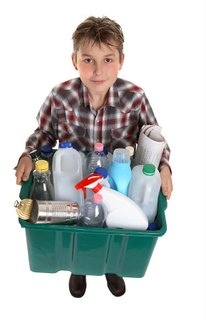Next Tuesday, April 22nd, the northern hemisphere will celebrate Earth Day for the 37th time. Now more than ever, it seems like a great time to talk to kids about the amazing planet that we live on and how we can best use and protect its resources.
If you find yourself experiencing feelings of fear when you hear the experts say that we’re about to lose our polar bears and penguins, that frogs are experiencing the most complete mass extinction since the dinosaurs, that every year things are getting just a little bit hotter and we can all expect flood, fire and famine by the end of the 21st century, think about how kids must feel.
Many learned people disagree about the extent to which global warming will affect us in the future. Some think that the current weather and temperature trends we see are part of a cycle that has been repeated many times since the dawn of time. Others are heralding the end of life as we know it if pollution and emissions aren’t curtailed. I’m definitely not going to settle that question here, but I do want to share some ways that kids can feel empowered rather than helpless when it comes to the environment.
 I know of no better way to turn feelings of helplessness into feelings of purpose than to discover what options are available. The power of choice is one of the benefits that Montessori students depend on, because their preferences for the work that seems best to them are respected. This concept of choice ties in directly with the reality of climate change in that the outcomes will be largely dependent on the choices our species makes.
I know of no better way to turn feelings of helplessness into feelings of purpose than to discover what options are available. The power of choice is one of the benefits that Montessori students depend on, because their preferences for the work that seems best to them are respected. This concept of choice ties in directly with the reality of climate change in that the outcomes will be largely dependent on the choices our species makes.
On an individual basis, each one of us is capable of discovering what the alternatives are to environmental pollution, and once we have that information in hand, we can choose what seems best to us. And, we can make children a part of that. I hope you will get some good ideas from this list of ways children can begin to feel powerful about helping the planet.
- Children can participate in recycling for your home or classroom. They can learn about the different kinds of products that can be recycled, and collect items to be recycled from other classrooms, friends, and family members.
- Older children can learn to recognize and spot the words bio-degradable, post-consumer, recycled, non-toxic and organic. Choosing to purchase products like this is very responsible.
- If your community waste management program supports recycling, children of all
ages can help sort out the paper, plastic and metal that goes in the appropriate curbside bins. - Turning off lights, appliances, computers and other electricity users in the school or home cuts down on greenhouse gas emissions.
- Have children take part in replacing those old-fashioned light bulbs with the new compact fluorescent bulbs. For once, the fact that ‘everybody’s doing it’ is a bright idea!
- If you’ve got the space, plant a tree outside your school or home and talk about how trees cool the planet down in addition to beautifying our world and making habitat for birds and insects.
- Planning your next field trip? Try to find a place you can walk to.
- Make ‘doing-it-yourself’ a goal for your students. Humans who can cook, sew, clean and garden for themselves hold the power of self-sufficiency in their own hands, decreasing dependency on corporations and agribusiness – major environmental offenders.
- Let children spend as much time as they can in nature. Nothing promotes a sense of stewardship of the earth like a walk in the woods.
- Children can choose the topic of recycling or using “green” earth-friendly products for a research paper or presentation
My list is a short one. Doubtless you can think of other ways to empower children when it comes to caring for the planet. The environmental lessons they learn from you right now are absolutely going to affect the quality of their future. And, if you discover you’ve got budding environmentalists who are expressing a desire for even more information about climate change and our options, you might like to look for a book at the local library or bookstore called Who Says Kids Can’t Fight Global Warming? by Patrick GB Harrison. Based on a true story, this book revolves around some children who organize an environmental club and succeed in reducing vehicle emissions in their community by 30%. Sounds like a good read that will help children to feel positive about the wonderful world we live in.

